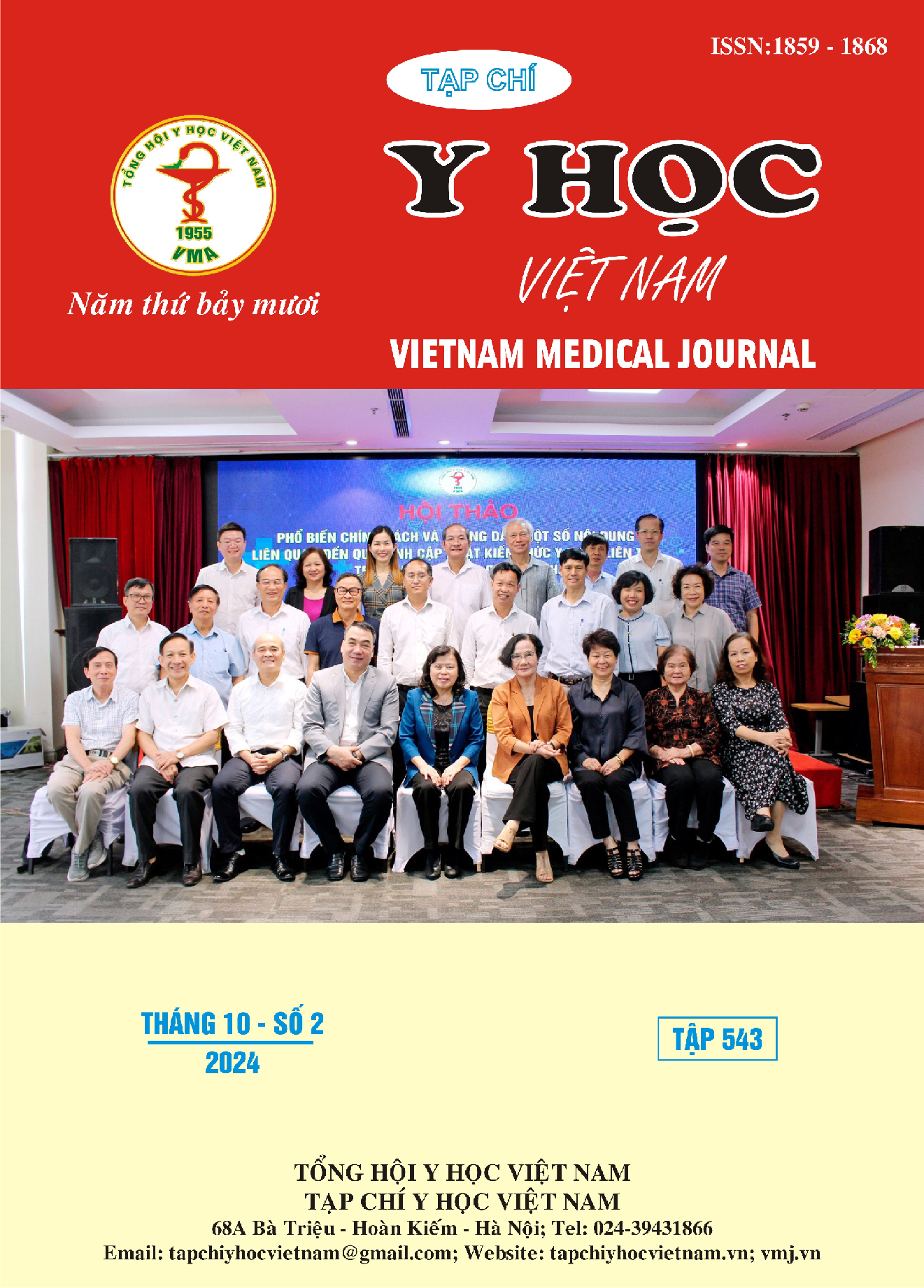SCOPING REVIEW ABOUT RESULTS OF VOICE THERAPY IN TREATMENT OF UNILATERIAL VOCAL FOLD PARALYSIS
Main Article Content
Abstract
Objective: Describe the results of studies on voice therapy to treat unilateral vocal cord paralysis in the period 2008 - 2023. Research design: scoping review: The study searched the databases PubMed, Google scholar, to identify articles related to the results of voice therapy in the treatment of unilateral vocal cord paralysis from 2008 to 2023. Results: A total of 768 studies were searched. Ultimately 12 studies meeting the criteria were selected for the review. Of which 1 were randomized controlled clinical trial, 3 were prospective, and 8 were retrospective. Describe each case with a total of 828 patients. Clinical criteria were evaluated such as the Voice handicap index (VHI), perturbations analysis, endoscopic laryngoscopy, the GIRBAS scale, the maximum phonation time. The results by the VHI clinical criteria showing that all indicators related to physical, functional, and emotional aspects were significantly improved, with p <0,001. Perturbations analysis showed that the Jitter, Shimmer, and NHR indexes all improved compared to before treatment with p <0,05. After voice therapy the prevalence of complete glottal closure increased significantly with p <0,001. The maximum phonation time improved with therapy with p<0.05. Conclusion: Treatment of unilateral vocal cord paralysis with voice therapy is an effective treatment, clinical criteria were VHI, perturbations analysis, endoscopic laryngoscopy, the GIRBAS scale, the maximum phonation time. Showed a clear and significant improvement, improved indicators related to voice quality, improved quality of life.
Article Details
Keywords
voice therapy, lateral vocal fold paralysis, dysphonia.
References
2. El-Banna M, Youssef G. Early voice therapy in patients with unilateral vocal fold paralysis. Folia Phoniatr Logop. 2014;66( 6):237-243.
3. Jeong GE, Lee DH, Lee YS, et al. Treatment Efficacy of Voice Therapy Following Injection Laryngoplasty for Unilateral Vocal Fold Paralysis. J Voice. 2022;36(2): 242-248. doi:10.1016/ j.jvoice.2020.05.014
4. Kurz A, Leonhard M, Denk-Linnert DM, Mayr W, Kansy I, Schneider-Stickler B. Comparison of voice therapy and selective electrical stimulation of the larynx in early unilateral vocal fold paralysis after thyroid surgery: A retrospective data analysis. Clin Otolaryngol. 2021;46(3):530-537.
5. Kao YC, Chen SH, Wang YT, Chu PY, Tan CT, Chang WD. Efficacy of Voice Therapy for Patients With Early Unilateral Adductor Vocal Fold Paralysis. J Voice. 2017;31( 5):567-575.
6. Desuter G, Dedry M, Schaar B, van Lith-Bijl J, van Benthem PP, Sjögren EV. Voice outcome indicators for unilateral vocal fold paralysis surgery: a review of the literature. Eur Arch Otorhinolaryngol. 2018;275( 2):459-468.
7. Schindler A, Bottero A, Capaccio P, Ginocchio D, Adorni F, Ottaviani F. Vocal improvement after voice therapy in unilateral vocal fold paralysis. J Voice. 2008 Jan;22(1):113-8. doi: 10.1016/j.jvoice.2006.08.004. Epub 2006 Oct 2. PMID: 17014987.
8. Santos M, Vaz Freitas S, Santos P, Carvalho I, Coutinho M, Moreira da Silva Á, Almeida E Sousa C. Unilateral Vocal Fold Paralysis and Voice Therapy: Does Age Matter? A Prospective Study With 100 Consecutive Patients. Ear Nose Throat J. 2021 Sep;100(5_suppl):489S-494S. doi: 10.1177/0145561319882116. Epub 2019 Oct 17. PMID: 31619079.m


